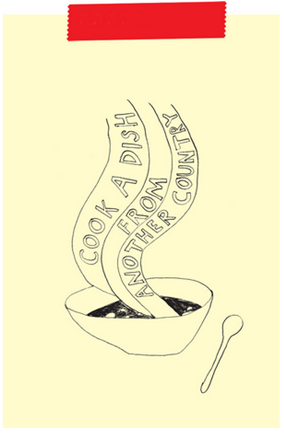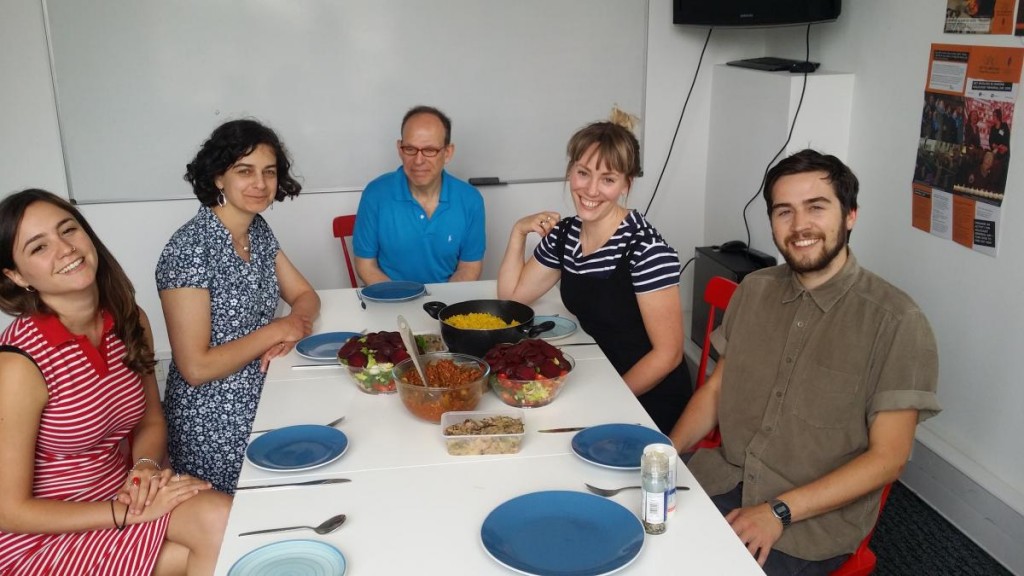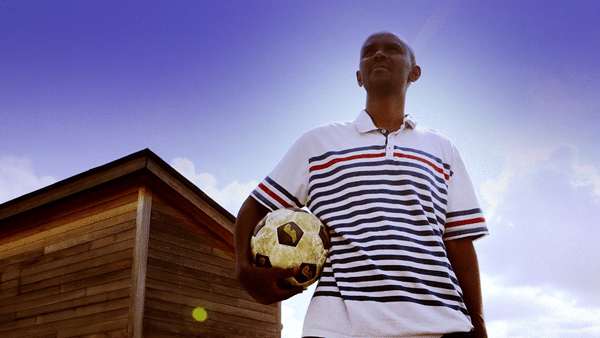To celebrate Refugee Week this week we chose to profile Darfuri culture by holding a team meal with food from Darfur, taking part in the Simple Acts campaign and testing our culinary skills at the same time.
Blog post by Holocaust Memorial Trust
Refugee Week takes place on the third week of June each year and promotes a better understanding of the reasons why people leave their own countries; which are often due to conflict, war and genocide. It also celebrates the many positive contributions that refugees bring to enhance our society – new experiences, perspectives, cultures and skills. 20 June is also UN World Refugee Day, enhancing our opportunity to pay testament to the strength, courage and resilience of refugees past and present.
We chose to cook a Darfuri meal to highlight the plight of Darfuri people today, where the black African population and their culture are being targeted for destruction by the Sudanese Government’s genocidal regime. The Genocide has been taking place for the past 12 years. Profiling Darfuri culture for Refugee Week felt like an especially important and defiant act as genocide is an attempt to destroy a people and their culture.
Fleeing the conflict has created a tremendous amount of displacement in Darfur and neighbouring countries. The United Nations (UN) estimates that 300,000 Darfuri refugees are living in camps in Chad and 2.7 million have been internally displaced.
Some of those displaced have sought refuge and found new homes in the UK. Abdulsalam witnessed unprovoked heavy-handed attacks by government sponsored militia in his town of Kutum, Darfur. He was taken away for forced labour and managed to escape, with the support of his uncle he undertook a dangerous journey to the UK bundled in a crate.
Our Darfuri meal
The meal that we made consisted of recipes provided by members of the Darfuri community. We cooked myllaah bamyah, lady finger stew, with Sudanese rice flavoured with cardamom and turmeric and roasted, mashed aubergine.
Here’s our Vine of the making and eating:
Stories of refugees
Throughout Refugee Week we are profiling the experiences of Holocaust and genocide survivors who have contributed to the diversity and richness of life in the UK.
Refugees such as:
Ivor Perl, who was sent to Auschwitz at the age of 11 and survived along with his brother. Ivor settled in the UK and raised his family here. Today, at the age of 83 he still supports the work of HMDT, taking part in our Memory Makers project for Holocaust Memorial Day 2015.
Eric Murangwa, is a Rwandan footballer who played for Kigali’s top football team Rayon Sports. As a Tutsi he was part of the ethnic group targeted for destruction during the Genocide in Rwanda but was kept safe, hidden by his team mates.
After the genocide had ended Eric still felt unsafe in Rwanda because of his public profile as a footballer. He sought refuge in the UK where today, motivated by his love of football, Eric established Football for Hope, Peace and Unity, an organisation that uses football to promote tolerance, unity and reconciliation among young people in the UK and in Rwanda.
Explore more of our fascinating Refugee Week stories on Facebook, Instagram and on our pin board on Pintrest. Share them using the hashtag #RefugeesContribute
There are lots of ways that you can mark Refugee Week by taking part in the Simple Acts campaign.
Read about the work of NGO Waging Peace who work closely with the Sudanese community in the UK to campaign against genocide and systematic human rights violations in Sudan.
View original blog post: http://hmd.org.uk/news/refugee-week-meal-darfur
Find out more about the Holocaust Memorial Trust: www.hmt.org.uk


